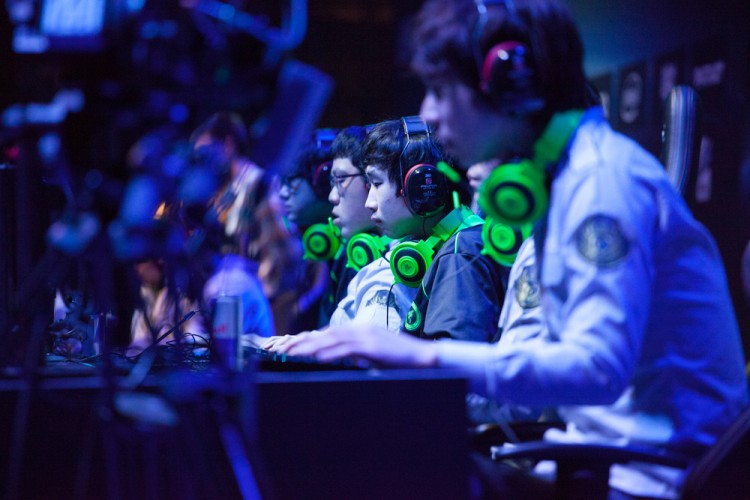In gaming, smooth and lag-free gameplay is essential for an immersive experience.
One often overlooked aspect that can significantly impact gaming performance is PC memory, also known as RAM (Random Access Memory). Insufficient memory can lead to lag, slow load times, and sluggishness.
In this blog post, we will explore the importance of PC memory in optimizing gameplay and provide tips on enhancing it for a better gaming experience.
Understanding the Role of PC Memory in Gaming
PC memory serves as a temporary storage space for data actively being used by the computer. In gaming, the CPU fetches data from various sources, such as game assets, textures, and AI calculations, and stores them in RAM for quick access. Insufficient memory can cause the CPU to constantly swap data between RAM and the slower storage device, resulting in performance bottlenecks and decreased gameplay quality.
Importance of PC Memory in Gaming
- Reduced Lag: Adequate PC memory allows for smoother gameplay by minimizing lag. It ensures that game assets and data are readily accessible, reducing the time it takes for the CPU to retrieve and process information.
- Faster Load Times: Games with large maps or complex environments often require significant data to be loaded into memory. Sufficient PC memory enables faster loading of game levels, reducing waiting times and getting you into the action more quickly.
- Seamless Multitasking: PC memory is not only crucial for gaming but also for multitasking while gaming. Additional memory allows you to run background applications, such as voice chat software or streaming tools, without impacting game performance.
- Improved Texture Quality: Games with high-resolution textures and detailed graphics require ample memory to properly store and display these assets. Sufficient PC memory ensures that textures can be loaded and rendered seamlessly, enhancing visual quality.
- Better AI and Physics: Many modern games incorporate advanced AI algorithms and physics simulations. These calculations require significant computing power and memory to execute smoothly. Sufficient PC memory enables the CPU to handle these complex real-time calculations, enhancing the gaming experience.
Tips for Enhancing PC Memory for Gaming
- Upgrade RAM: Adding more RAM is the most effective way to enhance PC memory for gaming. Assess your memory capacity and consider upgrading to higher-capacity modules or adding additional RAM sticks. Aim for at least 8GB or more, depending on the requirements of the games you play.
- Choose Faster RAM: In addition to capacity, the speed of RAM modules can impact gaming performance. Look for RAM with faster clock speeds (measured in MHz) to improve data transfer rates and reduce latency. Consult your motherboard’s specifications to ensure compatibility with higher-speed RAM modules.
- Optimize Virtual Memory: Virtual memory, also known as the page file, is a portion of the hard drive used as temporary storage when RAM is fully utilized. Adjusting virtual memory settings can help alleviate memory constraints. Set a custom virtual memory size or allow Windows to manage it automatically for optimal performance.
- Close Unnecessary Background Applications: Close any unnecessary applications running in the background to free up memory resources. Applications like web browsers, media players, or resource-intensive software can consume valuable memory that could be better utilized for gaming.
- Keep Your System Clean: Regularly clean out temporary files, cache, and unnecessary files from your system. These files can accumulate over time and take up valuable disk space and memory resources. Utilize built-in tools like Disk Cleanup or third-party software to streamline your system’s performance.
- Update Drivers and Software: Keeping your drivers and software up to date is crucial for optimal performance. Manufacturers often release updates that address performance issues and improve compatibility with games. Check for updates regularly and install them accordingly.
- Avoid Memory-Hogging Mods or Plugins: Some mods or plugins in games can significantly impact memory usage. Be mindful of the mods or plugins you install, as some may consume excessive memory resources. Choose lightweight alternatives or limit the number of resource-intensive mods to optimize memory usage.
Optimizing PC memory is key to enhancing gameplay and overall gaming performance. By understanding the role of PC memory in gaming and implementing strategies such as upgrading RAM, choosing faster modules, optimizing virtual memory settings, closing unnecessary background applications, keeping your system clean, updating drivers and software, and being mindful of memory-hogging mods or plugins, you can elevate your gaming experience.
Ensure your PC has sufficient memory to handle demanding games and enjoy smooth, lag-free gameplay that immerses you in the virtual world.
